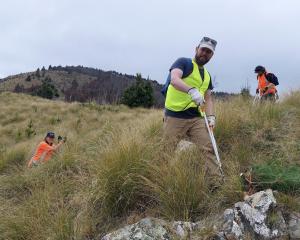Dr Wright and her staff assessed a recent Government report on air quality and the findings were released yesterday.
The report, released in January, said Central Otago recorded by far the highest number of air quality breaches in the country.
Dr Wright has recommended a change in the way the major air pollutant in this country is managed.
The air quality regulations were 10 years old and should be ''brought up to date with current scientific understanding'', she said.
The air pollutant of most concern was particulate matter (PM) - tiny airborne particles that could damage respiratory and cardiovascular health.
Regional councils monitored air pollution and the focus was on PM10 (particles with a diameter of less than 10 microns).
The most important World Health Organisation air level guideline was for long-term exposure to PM2.5 (particles with diameter less than 2.5 microns) and the least important guideline was for short-term exposure to PM10 - ''yet it is this particulate that is the basis for New Zealand's standard for particulate matter,'' Dr Wright said.
Changing the regulations to focus on long-term exposure to PM2.5 would ''widen council perspectives beyond home heating''.
''The current rule puts the spotlight solely on the winter spikes [of air pollution breaches] and it is easy to assume that home fires are the only source of particulates, or at least, the only source we should worry about.
''The same still winter days and temperature inversions that trap the particulates from home fires will also trap the particulates from diesel vehicles - and the nitrogen dioxide and sulphur dioxide.''
Scientists said the smaller airborne particles were, the greater the health damage.
Finer particles would penetrate deep into the lungs and ultrafine particles could find their way into the bloodstream, she said.
''It has also become clear that while spikes of air pollution on still winter days can be harmful to those suffering from respiratory ailments, it is long-term exposure throughout the whole year that has the greater impact on the population as a whole.''
Dr Wright said air quality was high on most days, even in towns such as Alexandra, and there had been ''great progress over the years'', helped by the shift to electrical heating and more clean-burning wood burners.
There had been a tension between two desired health outcomes, keeping warm in winter and cleaning up the air.
More analysis should be done on natural sources of air pollution and on investigating the impact of air quality rules on other public health issues, such as cold, damp homes, she said.
Central Otago Mayor Tony Lepper welcomed Dr Wright's recommendations.
''I'd have to agree with what she says, and no-one can quantify for us the impact on peoples' health if they avoid using forms of heating because it's too expensive,'' Mr Lepper said.












